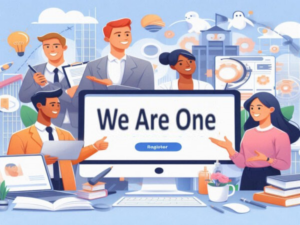Neoliberalism
The ideology of our political age
Economists discussed liberal economic concepts already in the 1930s. Friedrich Hayek’s pamphlet “The Road to Serfdom” – considered the founding text of todays neoliberalism ideology – was published in 1944 as World War II raged and people saw first-hand the horrific potential of total state control. For Hayek, German and Soviet economic planning was the main cause of these tyrannies. He proclaimed that reducing state intervention in the economy could prevent this from happening in the future.
Terminological confusion
Some economists refer to the liberal concepts of the 1930s as neoliberalism, although they could more accurately be described as ordoliberalism. However, anyone who equates the neoliberalism of the 1980s with the liberal ideas of the 1930s is making a systematic mistake. In theory, contemporary neoliberalism has little in common with that of the 1930s. Today’s neoliberalism perverts the ideas of the 1930s.
In the 1950s, the young ideology attracted the attention of the rich, who saw it as a means of escaping unwanted state constraints – especially public protection measures and high taxes. With generous funding, networks were established to spread the neoliberal word among academics and policy makers.
It took until Thatcher and Reagan, who took power in 1979 and 1980 respectively, to implement neoliberal principles on a massive scale.
Thatcher’s 11 years in power saw massive tax cuts for the wealthy, successful union busting, widespread privatization of housing, telecommunications, steel and gas, deregulation of the financial sector and the introduction of competition in the provision of public services, leaving Britain in a significantly different state.
Reagan had also followed a similar path, stripping power from the trade unions and cutting public spending.
In Britain, where neoliberalism was most strongly followed, policy goals were often missed. Economic growth – the Holy Grail of neoliberals and the main indicator of progress – was actually slower than in previous decades.
Inequality rose dramatically. Thatcher’s union busting drove down wages and increased in-work poverty, even as unemployment began to fall. Similar trends occurred in the US, where Reagan’s massive tax cuts, the dismantling of social security (cutting food stamps, for example, or increasing subsidies to corporations), increased both inequality and poverty while lining the pockets of big business.
But the deliberate transfer of authority into the hands of unaccountable transnational corporations was arguably the worst consequence of the ascendancy of neoliberalism. Essential services were outsourced, and with the exploding lobbying industry, money began to rule. This development limited the government’s power to respond to the needs of its constituents. The resulting disempowerment and the gap between the rulers and the ruled led to popular discontent and turmoil.
More than just an economic theory
In the course of its development, neoliberalism has evolved into a general social framework that influences how we see the world and ourselves. It has redefined what it means to be human: Humans are no longer the sensitive, cooperative and empathetic beings that science says they are; they have been reduced to competitors. Neoliberalism has set people against each other and valorized the idea of “getting ahead” – who gets ahead and by what means hardly matters.
Neoliberalism teaches that our democratic choices are best expressed through transactions: a process of rewarding merit and punishing inefficiency. This has essentially encouraged atomization. Social bonds have been loosened and the interests of the individual placed above all else. As Thatcher put it, “There is no such thing as society”.
Own version of: https://inomics.com/de/blog/eine-kritik-am-neoliberalismus-1379580
Concluding remarks
It is right and good that in a liberal economy those who have something to offer in competition are rewarded – ultimately for the benefit of all. And it is inevitable that those whose performance is lower, for whatever reason, are not as well rewarded economically.
In a liberal economy, commitment and the will to perform pay off, and this should not be changed under any circumstances. At the same time, many people are not in a position to offer anything in competition. State intervention is needed here to ensure that these people do not go under.
Acquiring competence is laborious and exhausting. The paradise in which fruit can be harvested without effort does not exist. Those who want to go through life without effort, unwilling to learn anything at school, wasting their time on computer games or other activities that make little sense instead of doing something sensible and sustainable, bear the main responsibility for their misfortune and not the “circumstances”.
The free development of markets does not necessarily lead to a balance between the economically involved parties. It is the responsibility of the state to create a balance between the various interests. The central question is to what extent the state should perform this task.
In many cases, state institutions have reached a considerable size, which leads to them developing a certain life of their own. Under the pretext of comprehensive justice, they tend to claim more and more tasks for themselves. As a result, the overall system becomes more complicated, sluggish and the resulting frictional losses make it more expensive and more burdensome for citizens. It is therefore crucial to strike the right balance in order to ensure an optimal equilibrium between state intervention and individual freedom.






